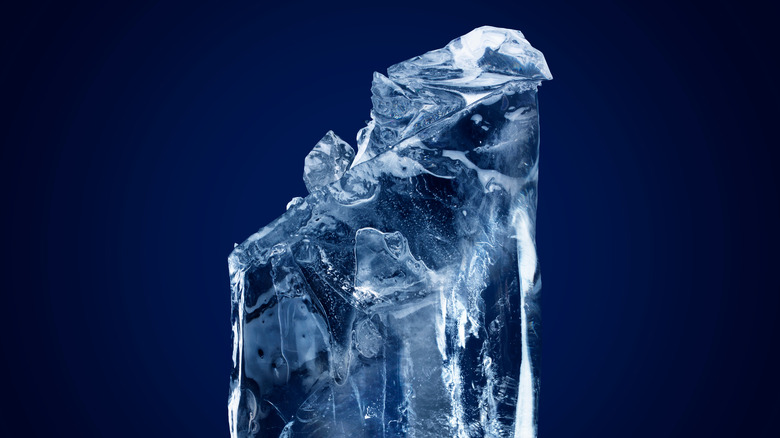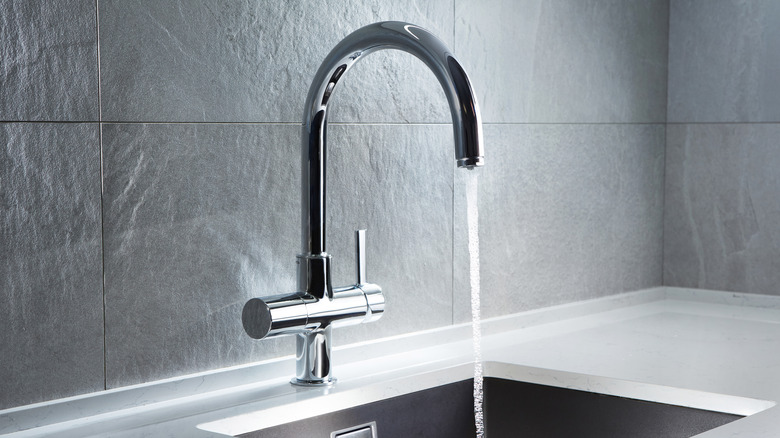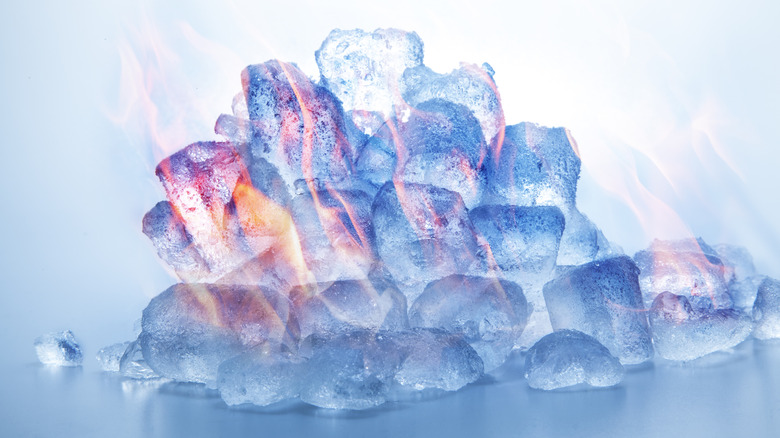Does Hot Water Actually Freeze Faster Than Cold Water?
As many who live in colder climates have probably been experiencing first-hand, when the air temperature plummets, and when water gets cold enough, it freezes.
This can prove to be a dangerous phenomenon. When the roads, made slick by snow or rain, freeze solid over the course of a frigid night, driving down the highway suddenly becomes an incredibly dangerous proposition (via the U.S. Department of Transportation).
Still, however, the freezing process isn't all that bad. The delicate art of ice carving can bring a lot of beauty to an event or get together. Perhaps most importantly, freezing water gives us ice cubes, the most effective tool in ensuring that your drink is nice and cold. Many recipes, though undeniably thorough, don't specify the temperature of the water that you should put into your ice cube tray. If you need a chilled drink stat, is it quicker for you to use hot or cold water?
How hot and cold water react to temperature changes
Before delving into the strange science behind freezing water, it's beneficial to address the common myth that cold water boils faster than hot water. The New York Times tells us that notion is untrue, and may have been constructed as a way to deter people from cooking with hot tap water, which contains more impurities. Additionally, Denver Water explains that hot water can dissolve the contaminants found in your water heater and pipes.
The science behind the reverse phenomenon of freezing water is much less cut and dry.
According to the University of Oregon, water freezes at 32 degrees Fahrenheit and 0 degrees Celsius, so it stands to reason that cold tap water would freeze faster. Cleveland Clinic Health Essentials says that cold tap water is usually around 60 degrees Fahrenheit, which is only a quick jump of around 30 degrees to water's freezing point. But science is a complicated thing, and in certain circumstances, hot water can actually freeze faster than cold water (via Cosmos Magazine).
The science of the Mpemba effect
According to Quanta Magazine, in 1969, Tanzanian physics student Erasto B. Mpemba was making ice cream with his classmates, when he placed his freshly boiled ice cream mixture in the refrigerator before it cooled off. His mixture solidified faster than that of his classmates, who had allowed theirs to cool. Thus, the Mpemba effect was discovered.
However, the exact reason why hot water sometimes freezes faster than cold is difficult to pin down. Water evaporates faster at higher temperatures, per Carleton College. Additionally, Scientific American tells us that this could explain how the Mpemba effect works, as the increased evaporation rate would mean that a container of hot water would have less water to freeze than an equally sized container of cold water. However, studies carried out by physics professor Dr. Denis Osborne and Mpemba himself in the 1970's revealed that evaporation was minimal, and couldn't fully explain the phenomenon (via Yale Scientific Magazine).
Cosmos Magazine, citing a 2017 study published in Physical Review Letters, tells us that molecules in a heated sample of water will move at inconsistent speeds, therefore making it difficult to replicate the Mpemba effect in a scientific setting. Nevertheless, you can witness the Mpemba effect first hand by making instant snow, per IFL Science. When you throw a pot of boiling water into frigid air, it can freeze, resulting in a snowy mist. Just be careful — tossing boiling water into the air could result in serious burns (via the Chicago Sun-Times).


